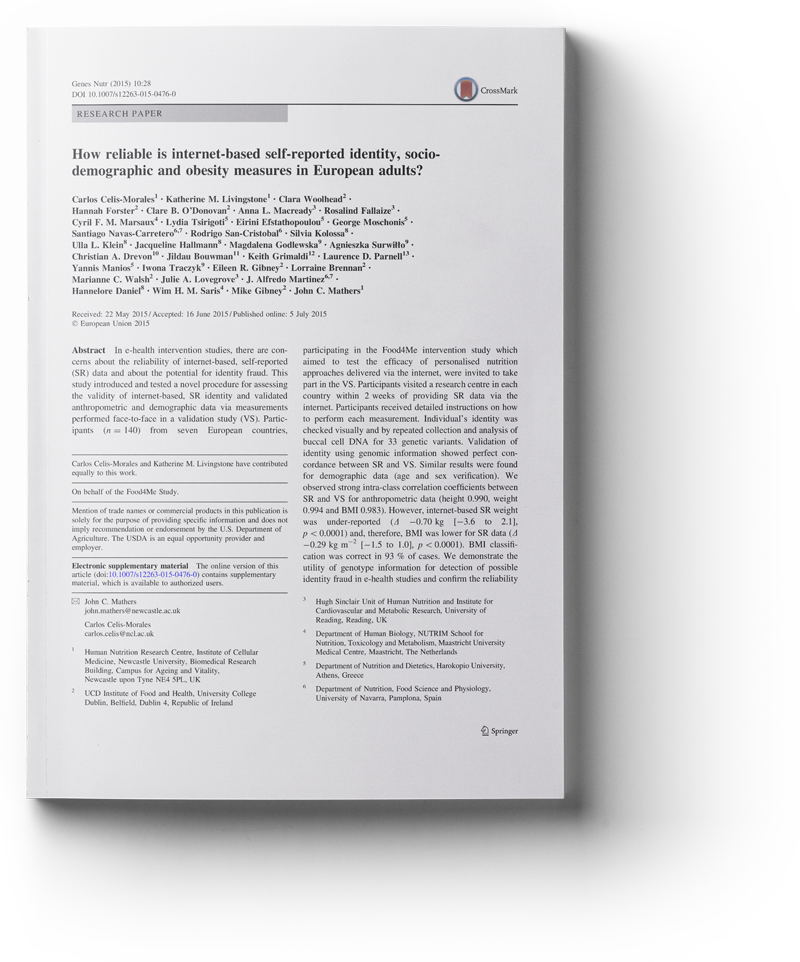Background: To determine the efficacy of behavior change techniques applied in dietary and physical activity intervention studies, it is first necessary to record and describe techniques that have been used during such interventions. Published frameworks used in dietary and smoking cessation interventions undergo continuous development, and most are not…
Authors: Macready A. et al on behalf of the Food4Me study
Publication date: 09/04/2018

